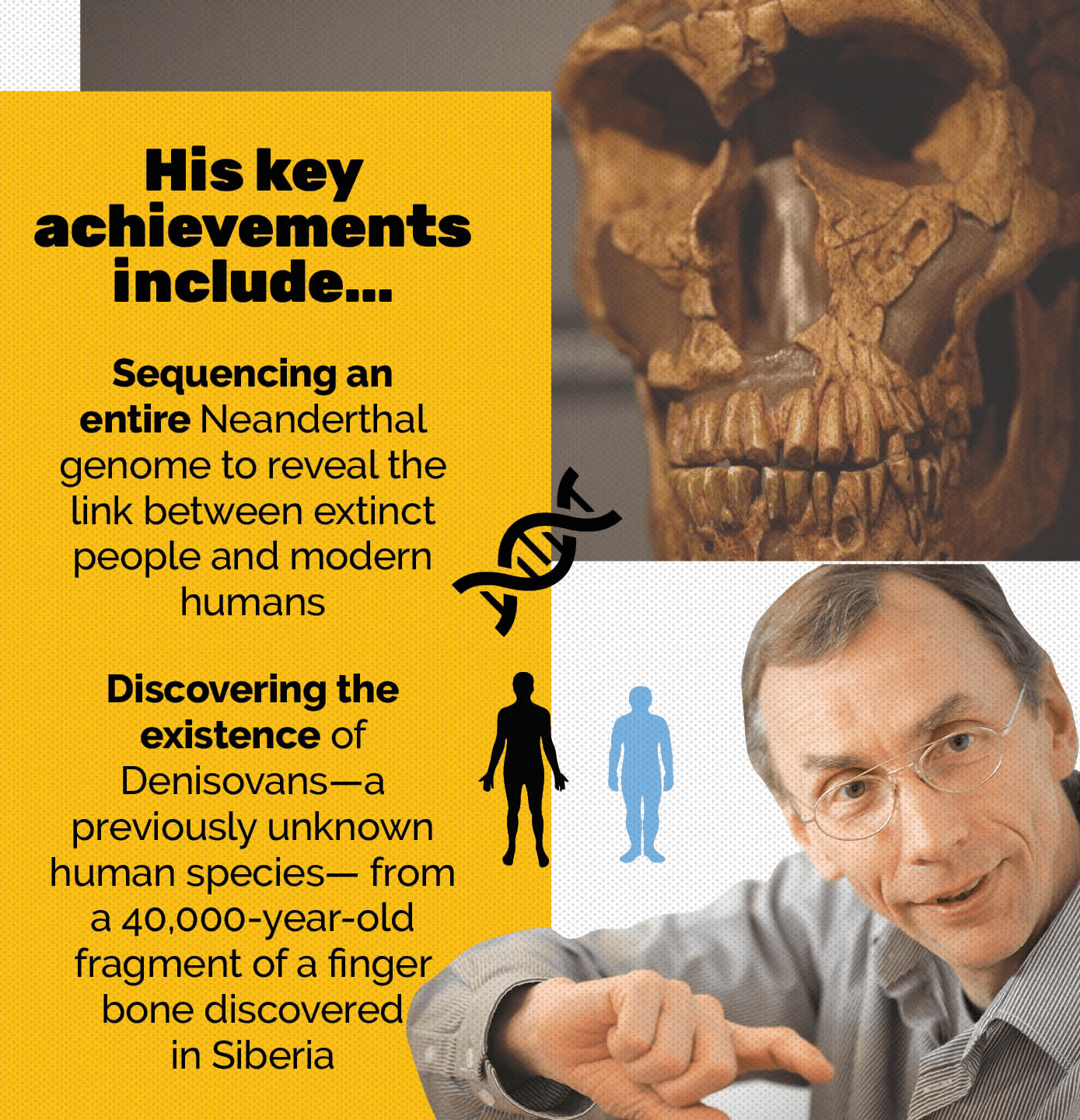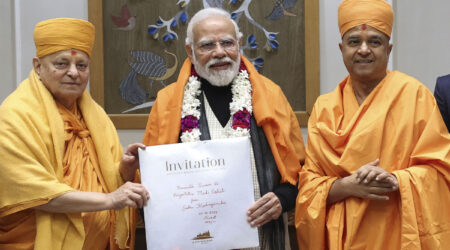New York: Swedish geneticist Svante Paabo, whose work provided key insights into human evolution and how humans spread around the planet by achieving “the seemingly impossible task” of cracking the genetic code of the Neanderthals was announced as the winner of this year’s Nobel Prize in Physiology or Medicine.
The Prize committee said Paabo – the son of 1982 Nobel laureate Sune Bergstrom and one of the founders of the discipline of paleogenomics – performed the “sensational” feat of discovering the humans’ previously unknown relative – the Denisovans – whose genes can still be detected in some inhabitants of south Asia.
Paabo’s work helps to explain where the human species, Homo sapiens, came from and what allowed it to thrive while other relatives went extinct, it said.
Though work on cracking the human genetic code began in the 1990s, it relied on fresh samples of pristine DNA, but his interest was in the old, degraded, and contaminated genetic material of our ancestors and he was able to sequence DNA from a 40,000-year-old piece of bone to show Neanderthals were separate from both modern-day humans and chimpanzees.
“By revealing genetic differences that distinguish all living humans from extinct hominins, his discoveries provide the basis for exploring what makes us uniquely human,” the Nobel committee said.
It also said that more comparisons between Neanderthal DNA and humans from around the world showed their DNA was a closer match to humans coming from Europe or Asia, and that Homo sapiens had sex and children with Neanderthals after migrating out of Africa.











